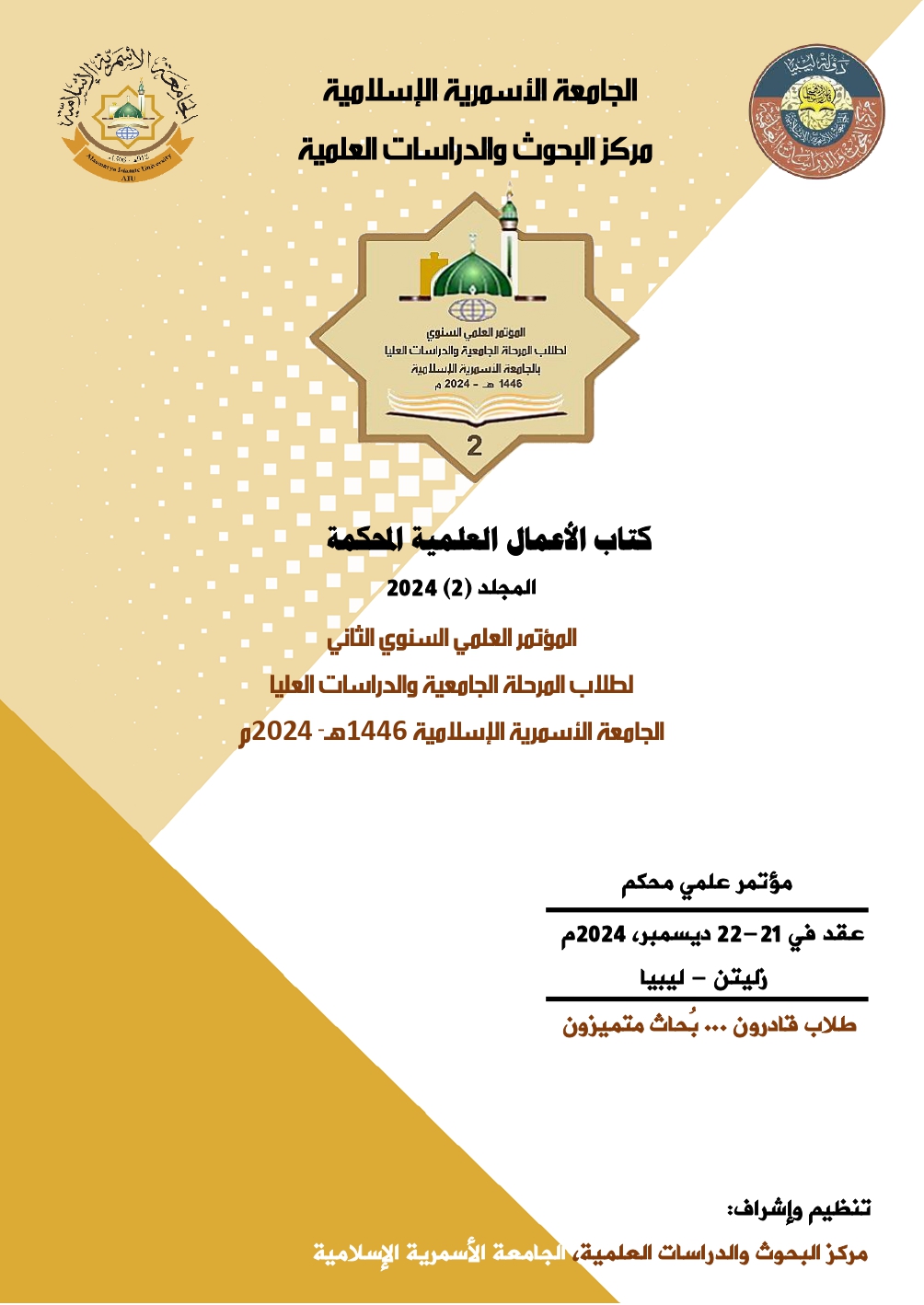Challenges Encountered by EFL Libyan Third-Year Preparatory Students from 2022 to 2024
Keywords:
EFL, Libyan, Third-year preparatory, StudentsAbstract
The ninth grade is a critical and sensitive period for students in Libya, marking the transition from middle school to secondary school. This stage significantly impacts students, necessitating their ability to confront challenges to ensure a smooth and successful entry into secondary education. However, the educational standards in Libya are generally considered subpar, requiring urgent intervention and solutions. Students face numerous issues during the ninth-grade exams, including teaching methods that do not align with their abilities, insufficient preparation time, an unsuitable curriculum, and unqualified teachers. These factors contribute to a high failure rate. The research focuses on identifying and addressing these challenges to reduce the failure rate and enhance educational outcomes. Surveys conducted among students and teachers from both private and public schools reveal the extent of these problems and their impact on the education system, particularly concerning the middle school certificate. Data collected from English language teachers and students were analyzed, leading to recommendations for improving the teaching process. The research successfully identified the challenges affecting ninth-grade students and proposed solutions to mitigate these issues, aiming to improve the overall education quality in Libya.
Downloads
References
Akbari, R. (2015). Teaching English: A fresh look at language learning and teaching. TESOL Quarterly, 49(2), 394-412.
Crystal, D. (2003). English as a global language. Cambridge University Press.
Khan, H. I. (2011). Challenges of teaching/learning English and management. Global Journal of Human-Social Science Research, 11(8).
Muhammad, M., Ishaq, A., & Bello, M. (2018). Problems of teaching and learning English as a second language in Nigeria. International Journal of Education, 10(1), 11-21.
Mustafa, M. & Zamzam, A. (2019). Obstacles to English language learning in Libyan schools. Journal of EFL Teaching and Learning, 5(1), 67-82.
Salem, M. M. M. (2023). A case study of the large-class effects on the teaching of English as a foreign language. The First International Conference on Applied Linguistics, 8-10 May 2023. Languages Center, Sabha University, Sabha, Libya.
Wold, A. (2006). Classroom management strategies for difficult students. Journal of Educational Psychology, 98(1), 41-52.
Downloads
Published
Conference Proceedings Volume
Section
License

This work is licensed under a Creative Commons Attribution-NonCommercial-NoDerivatives 4.0 International License.





